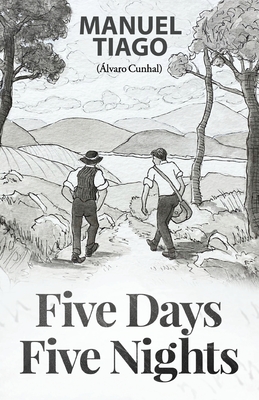Five Days, Five Nights: (Cinco Dias, Cinco Noites)

Five Days, Five Nights: (Cinco Dias, Cinco Noites)
officers in charge of the fort returned the manuscript to Cunhal, and he published it in 1975 under the pseudonym Manuel Tiago, with a fictitious indication that it had been found in the "author's" papers after his death (an explanation he also used for Até Amanhã, Camaradas). At the time the true authorship of these books was known only to the Party leadership. Only later in life, in 1994, did Cunhal acknowledge that he was "Manuel Tiago," pseudonymous author of several books (whose titles are noted in the biography of the
author). Cunhal had obviously heard many stories of his comrades' clandestine emigration across the border. Possibly, too, there may be some autobiographical content to the story given the author's involvement in the Portugue
PRP: 170.91 Lei
Acesta este Prețul Recomandat de Producător. Prețul de vânzare al produsului este afișat mai jos.
153.82Lei
153.82Lei
170.91 LeiIndisponibil
Descrierea produsului
officers in charge of the fort returned the manuscript to Cunhal, and he published it in 1975 under the pseudonym Manuel Tiago, with a fictitious indication that it had been found in the "author's" papers after his death (an explanation he also used for Até Amanhã, Camaradas). At the time the true authorship of these books was known only to the Party leadership. Only later in life, in 1994, did Cunhal acknowledge that he was "Manuel Tiago," pseudonymous author of several books (whose titles are noted in the biography of the
author). Cunhal had obviously heard many stories of his comrades' clandestine emigration across the border. Possibly, too, there may be some autobiographical content to the story given the author's involvement in the Portugue
Detaliile produsului










